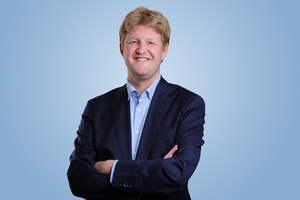Swiss National Science Foundation Supports Mathematics Project of UniDistance Suisse for Noise Reduction
3 Questions to Prof. Matthias Voigt on the Project "Numerical Methods for the Efficient of Acoustic Metamaterial Design”
What exactly is the project about?
The project is dedicated to creating advanced numerical methods for the optimization of acoustic metamaterials, which are specially engineered materials capable of controlling and directing sound waves in precise ways. These metamaterials are designed to enhance the acoustic performance of various systems—such as vehicles and noise barriers—to effectively reduce noise pollution. The research focuses on tackling complex, structured systems of equations, which opens the door to new, highly efficient numerical approaches for designing optimal acoustic metamaterials.
What does the support from the Swiss National Science Foundation mean to you?
The support from the Swiss National Science Foundation (SNSF) is crucial for my project. It provides the necessary resources to carry out the research to its full extent and to complete it successfully. Thanks to the grant, we can hire a PhD student who will further develop and implement my ideas.
What do you find particularly exciting about this project?
It fascinates me particularly that the project connects practical mathematics with a clear benefit to society. The possibility that our mathematical results may one day be used in practice and contribute to noise reduction in everyday applications is highly motivating. This project demonstrates how abstract mathematical concepts can concretely help solve technical challenges, such as sound minimization, and ultimately improve quality of life in the long term.
Matthias Voigt

Matthias Voigt has been an Assistant Professor of Applied Mathematics at UniDistance Suisse for over three years, where a bachelor's degree in mathematics is currently proposed. His research focuses on control theory, numerical mathematics, and optimization, particularly in the field of engineering.
For the current noise reduction project, he is working closely with Prof. Dr.-Ing. Stefan Marburg, who holds the Chair of Vibroacoustics of Vehicles and Machines at the Technical University of Munich.
Read more
More news

[Students] Technical tips to prepare for an online exam
Read more
[Etudiants] Quelques gestes pour participer activement à un cours à distance
UniDistance Suisse Read more
UniDistance Suisse joins the EUA, strengthening the international positioning of UniDistance Suisse
UniDistance Suisse Read more

